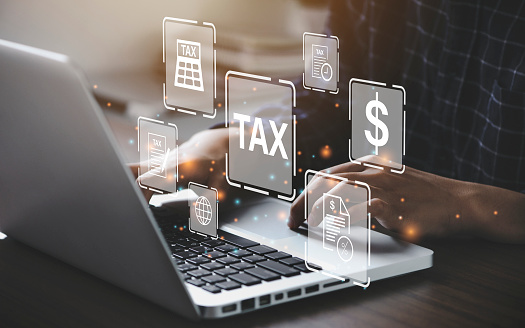Personal Tax Preparation: Tips and Tricks to File Your Taxes

Tax season can be stressful for many people. Whether you are a first-time filer or have been doing it for years, it can be overwhelming to keep up with tax laws and regulations. However, with the right preparation and guidance, filing your taxes can be a breeze. In this blog post, we will cover some tips and tricks for personal tax preparation that can help make tax season a little easier.
Gather all your necessary documents for personal tax preparation
Before you start filing your taxes, it is essential to have all the required documents in hand. These include W-2s, 1099s, receipts for charitable donations, and any other income or expenses that may affect your taxes. Gathering these documents in advance can help avoid any last-minute rush or delays.
Choose the right tax software or tax professional for personal tax preparation
The next step is to decide whether you want to use tax software or hire a tax professional. Tax software is a popular option for many people as it is relatively inexpensive and easy to use. However, if you have a more complex tax situation, hiring a tax professional may be the best option. A tax professional can help ensure that you get all the deductions and credits you are entitled to and can provide expert advice on tax planning.
Understand tax deductions and credits for personal tax preparation
One of the key benefits of tax preparation is identifying tax deductions and credits. These are expenses that can reduce your taxable income, which can, in turn, reduce the amount of tax you owe. Some of the most common deductions and credits include mortgage interest, charitable donations, education expenses, and medical expenses.
Organize your finances for personal tax preparation
Another important step in personal tax preparation is to organize your finances. This includes creating a budget, keeping track of your expenses, and reviewing your financial goals. By doing so, you can identify areas where you can save money and reduce your tax liability.
File your taxes on time
Finally, it is crucial to file your taxes on time. Failing to do so can result in penalties and interest charges. The deadline for filing federal income taxes is usually April 15th, although it may vary depending on the year. By filing your taxes on time, you can avoid unnecessary stress and penalties.
Keep track of changes in tax laws for personal tax preparation
Tax laws and regulations are constantly changing. It is essential to stay up-to-date on any changes that may affect your tax situation. For example, in 2021, there were several changes to the tax code due to the COVID-19 pandemic, including the option to deduct up to $300 in charitable donations without itemizing deductions. By keeping track of changes in tax laws, you can take advantage of any new deductions or credits that may be available to you.
Avoid Common Tax Mistakes
Filing your taxes can be stressful, and it is easy to make mistakes. However, some common mistakes can be avoided with a little attention to detail. For example, double-checking your math and ensuring that you have included all necessary forms can help avoid errors. Additionally, avoid the temptation to inflate deductions or under-report income, as this can result in penalties or even an audit.
Consider retirement contributions
Contributing to a retirement account, such as an IRA or 401(k), can provide significant tax benefits. Not only can contributions reduce your taxable income, but they can also grow tax-free until retirement. If you have not yet made contributions to a retirement account, consider doing so before the tax deadline.
Take advantage of tax extensions
If you find yourself unable to file your taxes by the deadline, you can request an extension. An extension gives you extra time to file your taxes without facing penalties. However, it is important to note that an extension only gives you more time to file your taxes, not to pay any tax owed. If you owe taxes, you may still be subject to penalties and interest charges.
Keep good records
Good record-keeping is essential for personal tax preparation. Keeping track of receipts, expenses, and other financial documents can help ensure that you have all the information you need to file your taxes accurately. It is also a good idea to keep copies of previous tax returns, as they can provide valuable information for future tax planning.
Conclusion
Personal tax preparation can be daunting, but it doesn’t have to be. By following the tips and tricks outlined in this blog post, you can file your taxes with confidence and ease. Remember to gather all your necessary documents, choose the right tax software or tax professional, understand tax deductions and credits, organize your finances, and file your taxes on time. If you need any assistance with personal tax preparation services, contact Barron Income Tax today. Their team of tax professionals can help ensure that your taxes are filed accurately and on time.





